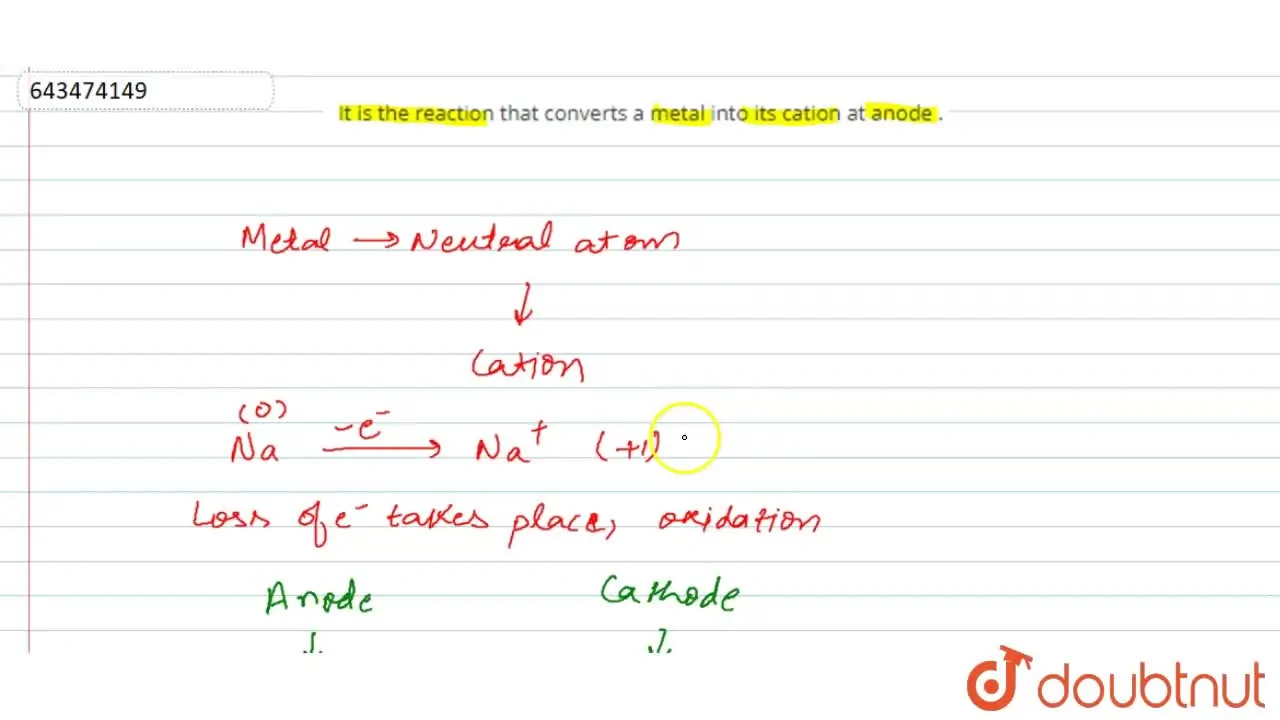It is the reaction that converts a metal into its cation at anode .
The correct Answer is:C
Step by step video, text & image solution for It is the reaction that converts a metal into its cation at anode . by Chemistry experts to help you in doubts & scoring excellent marks in Class 10 exams.
Related Playlists
- BOOK - ICSECHAPTER - ELECTROLYSISEXERCISE - QUESTION3videos
ELECTROLYSIS
- BOOK - ICSECHAPTER - ELECTROLYSISEXERCISE - WORK SHEET -117videos
ELECTROLYSIS
- BOOK - ICSECHAPTER - ELECTROLYSISEXERCISE - QUESTIONS FOR PRACTICE65videos
ELECTROLYSIS
- BOOK - ICSECHAPTER - CHEMISTRY-2015EXERCISE - SECTION-II (40 Marks) Attempt any four questions from this Section.49videos
CHEMISTRY-2015
- BOOK - ICSECHAPTER - METALLURGYEXERCISE - UNIT TEST PAPER 6 - Metallurgy (Select the correct answer from the list A,B,C & given in each statement.)5videos
METALLURGY
Similar Questions
Mendius reaction converts an alkyl cyanide to"
View SolutionState the i] electrolyte ii] cathode used iii] anode used iv] electrode reaction at cathode v] electrode reaction at anode iv] product at cathode and anode - during a] electroplating an article with nickel b] electroplating a spoon with silver c] purification of impure copper.
View SolutionA student wants to electroplate his/her key chain with nickel to prevent rusting . For this electroplating : Name the electrolyte Name the cathode Name the anode Give the reaction at the anode .
View SolutionWhen a neutral atom is converted into cation, there is
View SolutionTake any one alkali metal and write its reaction with Water
View SolutionDuring the recharging of lead acid storage cell the reaction at anode is
View SolutionTake any one alkali metal and write its reaction with Acid
View SolutionFor the electro-refining of copper
Write the reaction that takes place at the anode.View SolutionName the type of reaction that occurs at anode in an electrochemical cell. Give an example.
View SolutionName the reactions that take place at anode and cathode of the galvanic cell.
View Solution


